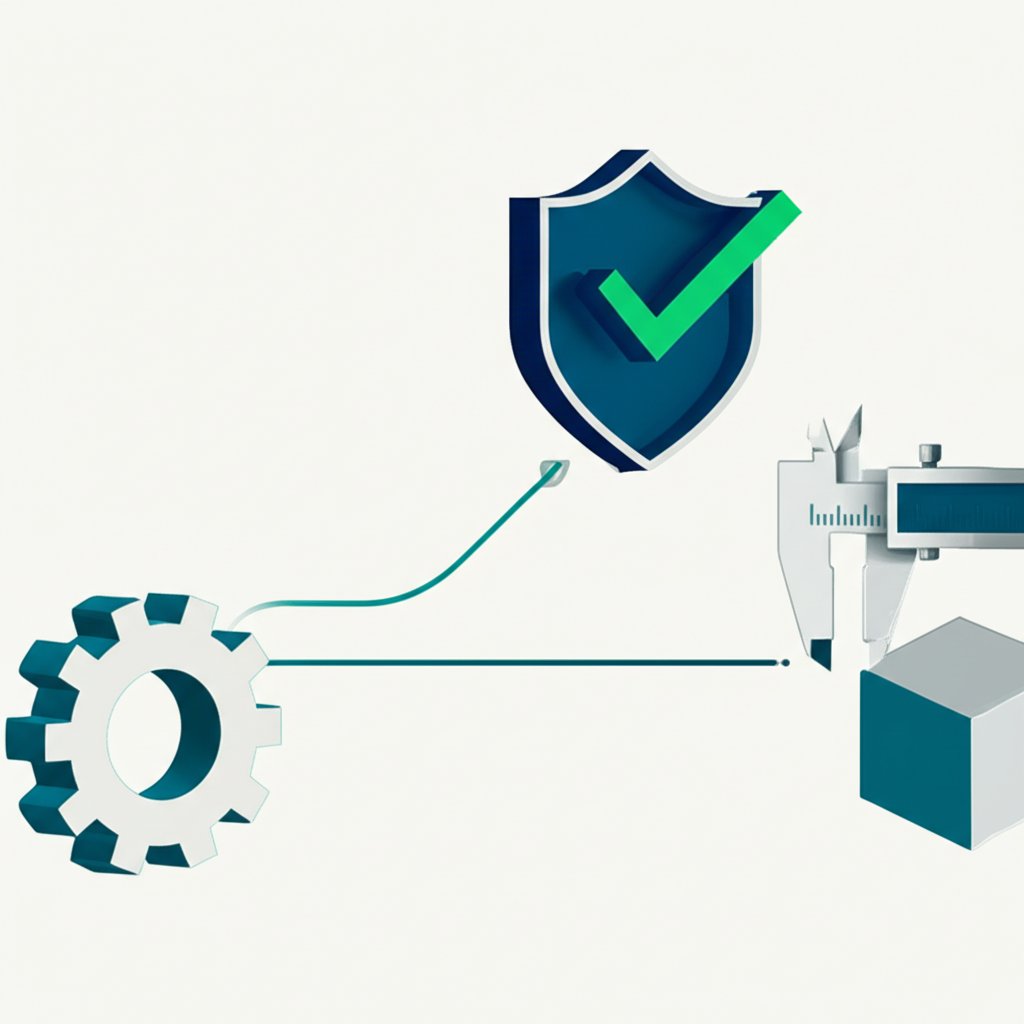Essential Questions to Ask a CNC Service Provider

TL;DR
Choosing the right CNC service provider requires a structured vetting process. It's essential to ask targeted questions about their core manufacturing capabilities, quality control systems, operational logistics, and specific industry experience. This thorough evaluation ensures your chosen partner can consistently meet critical project requirements for precision, materials, and delivery timelines, laying the foundation for a successful and reliable manufacturing partnership.
Evaluating Core Capabilities, Equipment, and Materials
The first step in vetting a potential CNC service provider is a deep dive into their fundamental production capabilities. This goes beyond a simple list of services; it involves understanding the specific technology they employ and the materials they master. A provider's equipment directly dictates the complexity, precision, and scale of the components they can produce. For example, a shop's proficiency with multi-axis milling and turning is crucial for creating parts with intricate geometries in a single setup, which enhances both accuracy and efficiency.
Inquire about the specifics of their machinery. Do they operate 3-axis, 5-axis, or even 7-axis machines? Advanced multi-axis capabilities, as highlighted by experts at Bridgewater Studio, allow for the creation of complex shapes with fewer setups, reducing the risk of error and improving turnaround times. Furthermore, ask if they offer specialized services like CNC Swiss turning, which is ideal for producing small, complex, and highly precise components, a specialty noted by Lakeview Precision. Understanding their equipment helps you align your project's technical demands with their proven abilities.
Equally important is their experience with a wide range of materials. While many shops work with common metals like aluminum and steel, your project may require specialized plastics, composites, or exotic alloys. A versatile partner should be able to advise on the best material for your application based on factors like durability, cost, and finish quality. Before committing, it's wise to compile a list of targeted questions to assess their technical limits and expertise.
- What is the tightest tolerance you can consistently achieve?
- What is the largest part size your machines can accommodate?
- Which specific materials (metals, plastics, composites) do you have extensive experience machining?
- Can you provide examples or case studies of projects with similar complexity to mine?
- Do your capabilities include multi-axis milling, live tooling, or CNC Swiss turning?
To further clarify material choices, consider this overview of common CNC materials and their applications:
| Material | Key Properties | Typical Applications |
|---|---|---|
| Aluminum (e.g., 6061) | Lightweight, good strength-to-weight ratio, corrosion resistant | Aerospace components, consumer electronics, automotive parts |
| Stainless Steel (e.g., 304, 316) | High strength, corrosion and heat resistant, durable | Medical devices, food processing equipment, marine hardware |
| Titanium | Excellent strength-to-weight ratio, biocompatible, extreme temperature resistance | Aerospace structures, high-performance engine parts, medical implants |
| ABS Plastic | High impact resistance, easy to machine, good toughness | Prototyping, enclosures, automotive interiors |
| PEEK | High-performance thermoplastic, excellent mechanical and chemical resistance | Bearings, seals, critical components in harsh environments |

Assessing Quality Control, Certifications, and Tolerances
A provider's commitment to quality is non-negotiable, especially for components used in critical applications. A robust quality management system (QMS) is the backbone of a reliable CNC service. The most widely recognized standard is ISO 9001, which indicates that the supplier has implemented and maintains a QMS focused on consistency, customer satisfaction, and continuous improvement. For automotive projects, the IATF 16949 certification is an even more stringent standard that builds upon ISO 9001, as noted by industry experts at Stecker Machine. Asking about these certifications is a critical first step in gauging their dedication to quality.
Beyond certifications, inquire about their specific quality control processes. How do they ensure that the first part is identical to the last in a high-volume run? Look for providers who utilize advanced inspection equipment like Coordinate Measuring Machines (CMM) for precise verification of part dimensions. Other indicators of a mature quality process include in-process probing, statistical process control (SPC), and error-proofing methods like poka-yoke, which is designed to prevent human errors in the manufacturing process. These systems demonstrate a proactive approach to quality assurance rather than a reactive one.
For many engineering projects, the ability to achieve and hold tight tolerances is a primary concern. This specialized skill is not universal among all CNC shops. You must directly ask about their experience with tight tolerance manufacturing. A capable partner should be able to confidently state the tightest tolerance they can consistently achieve—for example, ±0.0002 inches—and explain the methods and machinery they use to maintain that level of precision. This conversation reveals whether their capabilities align with the stringent demands of industries like aerospace, medical devices, and electronics.
- Are you ISO 9001 certified? Do you hold any other industry-specific certifications like AS9100 or IATF 16949?
- Can you describe your part inspection process, from first article inspection (FAI) to final checks?
- What quality control equipment, such as CMMs or high-accuracy bore gages, do you use?
- How do you document and ensure material traceability throughout the production process?
- What is your process for handling non-conforming parts?
Understanding Process, Logistics, and Communication
A provider's technical skills are only one part of the equation. Their internal processes for project management, logistics, and communication are equally vital for a successful partnership. An excellent machine shop operates as an extension of your team, which requires transparency and efficiency. Key logistical questions revolve around turnaround times, outsourcing, and supply chain management. Ask for a typical timeline for a project similar to yours and clarify whether they outsource any services like finishing, heat treating, or plating. While outsourcing is common, it's important to know how they manage these external vendors to prevent delays and maintain quality control.
A significant value-add is a provider with an in-house engineering department. Such a team can offer critical feedback on your designs to improve manufacturability. For businesses looking to accelerate product development, partners like XTJ offer comprehensive formative manufacturing services, providing crucial Design for Manufacturability (DFM) feedback during the rapid prototyping phase. This collaborative approach helps identify potential production issues early, saving significant time and money down the line. A partner who can manage the entire supply chain, from procuring raw castings to managing inventory, offers a streamlined, single-source solution.
Clear and consistent communication is the glue that holds a project together. You should have a dedicated point of contact who provides regular updates and is readily available to discuss project details. The Request for Quote (RFQ) process is often the first test of this communication. A professional provider will respond with a detailed and accurate quote, but they may also ask clarifying questions to ensure they fully understand your requirements. This initial dialogue is a strong indicator of the collaborative and transparent relationship you can expect moving forward.
- What is your typical lead time for projects of this scope and volume?
- Do you outsource any part of your process? If so, how do you manage quality with those vendors?
- Do you offer flexible inventory or stocking programs, such as Kanban or Just-in-Time (JIT)?
- What is your process for providing project updates and managing communication?
- Can your engineering team provide Design for Manufacturability (DFM) analysis on our parts?
Gauging Industry Experience and Customer Fit
Finally, it's crucial to select a provider with direct and demonstrable experience in your specific industry. The requirements for a medical device component, with its need for biocompatible materials and burr-free finishes, are vastly different from those of an automotive part that must withstand high temperatures and vibration. A partner who understands the unique standards, regulations, and material challenges of your sector can provide invaluable insight and ensure compliance. They will already be familiar with standards like FDA compliance for medical parts or AS9100 for aerospace components.
A provider's customer portfolio and project history are excellent indicators of their expertise. Don't hesitate to ask what industries they primarily serve and request case studies or examples of projects similar to yours. Seeing their past work provides tangible proof of their ability to handle the specific complexities and quality demands of your application. A shop that proudly displays its long-term relationships with Tier 1 OEM customers in demanding fields like agriculture, construction, or defense demonstrates a proven track record of reliability and performance.
You should also assess their ability to scale with your needs. Does the shop handle both rapid prototyping and high-volume production runs? A partner who can support your project from the initial concept and prototyping phase through to full-scale production offers continuity and efficiency. This flexibility is vital for long-term projects and evolving product life cycles. Ultimately, the goal is to find a partner who is a good cultural and operational fit—one who invests in understanding your goals and works collaboratively to achieve them.
- What industries do you primarily serve?
- Can you provide references or case studies from customers in our industry?
- Do you have experience with the specific regulatory standards relevant to our field (e.g., ITAR, FDA, AS9100)?
- Are you equipped to handle both low-volume prototyping and high-volume production?
- How do you align your processes to meet the specific quality and documentation needs of our industry?
Choosing a Strategic Partner, Not Just a Supplier
Selecting a CNC service provider is a strategic business decision that extends far beyond comparing price quotes. By asking these targeted questions, you can move past surface-level claims and gain a deep understanding of a potential partner's true capabilities, commitment to quality, operational maturity, and industry expertise. The most successful outcomes arise from a collaborative partnership built on transparency, technical excellence, and a shared commitment to achieving your project's goals. Taking the time to conduct this thorough vetting process will pay dividends in the form of reliable parts, on-time deliveries, and a manufacturing relationship you can trust for years to come.

Frequently Asked Questions
1. How often should a CNC machine be serviced?
The frequency of CNC machine maintenance depends on its usage. For machines under regular use, servicing is typically recommended every 3 to 6 months. However, machines that are used heavily or for long, continuous production runs may require more frequent checks and preventative maintenance to ensure optimal performance and longevity.
2. What are the 7 major parts of a CNC machine?
The seven key components of a typical CNC machine are the Machine Control Unit (MCU), which acts as the brain; Input Devices for loading the program; the Drive System that moves the axes; the Machine Tool itself (e.g., spindle, cutting tool); a Feedback System to monitor position and speed; the Bed and Table which form the machine's structure; and a Cooling System to manage heat during operation.
3. How much do CNC services cost?
The cost of CNC services varies significantly based on machine complexity, material, part geometry, and quantity. As a general estimate, hourly rates can range from around $50 for a simple 3-axis machine to over $150 for a complex 5-axis machine. The final price is determined by programming time, setup time, machining time, and any additional finishing or inspection requirements.





